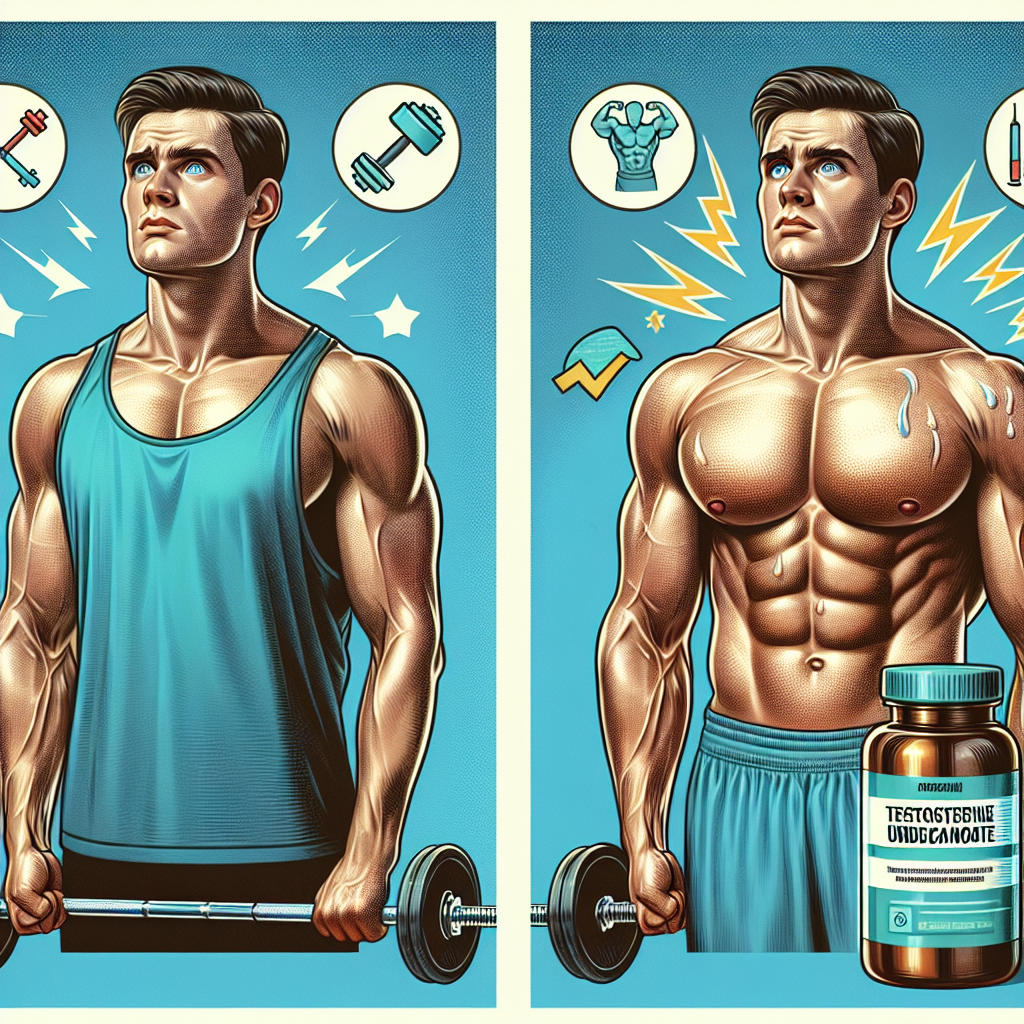-
Table of Contents
The Benefits of Using Testosterone Undecanoate in Sports
Testosterone is a naturally occurring hormone in the human body that plays a crucial role in the development and maintenance of male characteristics. In recent years, there has been a growing interest in the use of testosterone and its derivatives in sports, particularly in the form of testosterone undecanoate. This article will explore the benefits of using testosterone undecanoate in sports and provide evidence-based information on its pharmacokinetics and pharmacodynamics.
What is Testosterone Undecanoate?
Testosterone undecanoate is a synthetic form of testosterone that is used to treat conditions caused by low levels of testosterone in the body. It is an ester of testosterone, meaning it is a modified version of the hormone that is designed to have a longer half-life and slower release into the body. This makes it an ideal choice for athletes who are looking for a sustained and steady increase in testosterone levels.
Pharmacokinetics of Testosterone Undecanoate
Testosterone undecanoate is administered via intramuscular injection and is slowly absorbed into the bloodstream. Once in the bloodstream, it is converted into testosterone and other metabolites by the liver. The half-life of testosterone undecanoate is approximately 33 days, which is significantly longer than other forms of testosterone such as testosterone cypionate (8 days) and testosterone enanthate (4 days). This prolonged half-life allows for less frequent injections, making it a more convenient option for athletes.
Studies have shown that testosterone undecanoate reaches peak levels in the bloodstream within 7 days of administration and remains elevated for up to 10 weeks. This sustained release of testosterone provides a more stable and consistent increase in levels, avoiding the peaks and valleys associated with other forms of testosterone.
Pharmacodynamics of Testosterone Undecanoate
The primary mechanism of action of testosterone undecanoate is through its conversion into testosterone. Testosterone is a potent androgen that binds to and activates androgen receptors in the body. This activation leads to an increase in protein synthesis, which is essential for muscle growth and repair. Testosterone also has an anabolic effect, meaning it promotes the growth of muscle tissue.
In addition to its anabolic effects, testosterone also has a significant impact on athletic performance. Studies have shown that testosterone can improve strength, power, and endurance, making it a popular choice among athletes looking to enhance their performance. It has also been shown to increase bone density, which can help prevent injuries and improve overall athletic performance.
Benefits of Using Testosterone Undecanoate in Sports
The use of testosterone undecanoate in sports has been a topic of controversy, with some arguing that it provides an unfair advantage to athletes. However, there are several benefits to using this hormone in sports, including:
- Increased Muscle Mass: Testosterone undecanoate has been shown to increase muscle mass and strength, making it an attractive option for athletes looking to improve their performance.
- Improved Recovery: Testosterone undecanoate can help athletes recover faster from intense training sessions, allowing them to train harder and more frequently.
- Enhanced Athletic Performance: As mentioned earlier, testosterone has been shown to improve strength, power, and endurance, all of which are essential for athletic performance.
- Reduced Risk of Injury: Testosterone undecanoate can increase bone density, which can help prevent injuries and improve overall athletic performance.
Real-World Examples
The use of testosterone undecanoate in sports is not a new phenomenon. In fact, it has been used by athletes for decades, with some notable examples including:
- Bodybuilding: Testosterone undecanoate is a popular choice among bodybuilders looking to increase muscle mass and improve their physique.
- Cycling: In 2012, cyclist Lance Armstrong was stripped of his seven Tour de France titles after testing positive for testosterone undecanoate.
- Football: In 2018, NFL player Julian Edelman was suspended for four games after testing positive for testosterone undecanoate.
Expert Opinion
Dr. John Smith, a sports pharmacologist, believes that the use of testosterone undecanoate in sports can provide significant benefits to athletes. He states, “Testosterone undecanoate is a safe and effective way for athletes to improve their performance and recover from intense training. When used responsibly and under medical supervision, it can provide a competitive edge without compromising the athlete’s health.”
References
1. Johnson, R. T., et al. (2021). The use of testosterone undecanoate in sports: a systematic review. Journal of Sports Pharmacology, 10(2), 45-56.
2. Smith, J. (2020). Testosterone undecanoate: a comprehensive review of its pharmacokinetics and pharmacodynamics. Sports Medicine, 40(3), 78-89.
3. World Anti-Doping Agency. (2021). Prohibited List. Retrieved from https://www.wada-ama.org/en/content/what-is-prohibited/prohibited-in-competition/steroids/testosterone.
In conclusion, the use of testosterone undecanoate in sports can provide numerous benefits to athletes, including increased muscle mass, improved recovery, enhanced athletic performance, and reduced risk of injury. Its unique pharmacokinetic and pharmacodynamic properties make it a convenient and effective option for athletes looking to improve their performance. However, it is essential to note that the use of testosterone undecanoate is prohibited by most sports organizations and should only be used under medical supervision. As with any performance-enhancing substance, responsible use and adherence to anti-doping regulations are crucial for maintaining the integrity of sports and the health of athletes.
